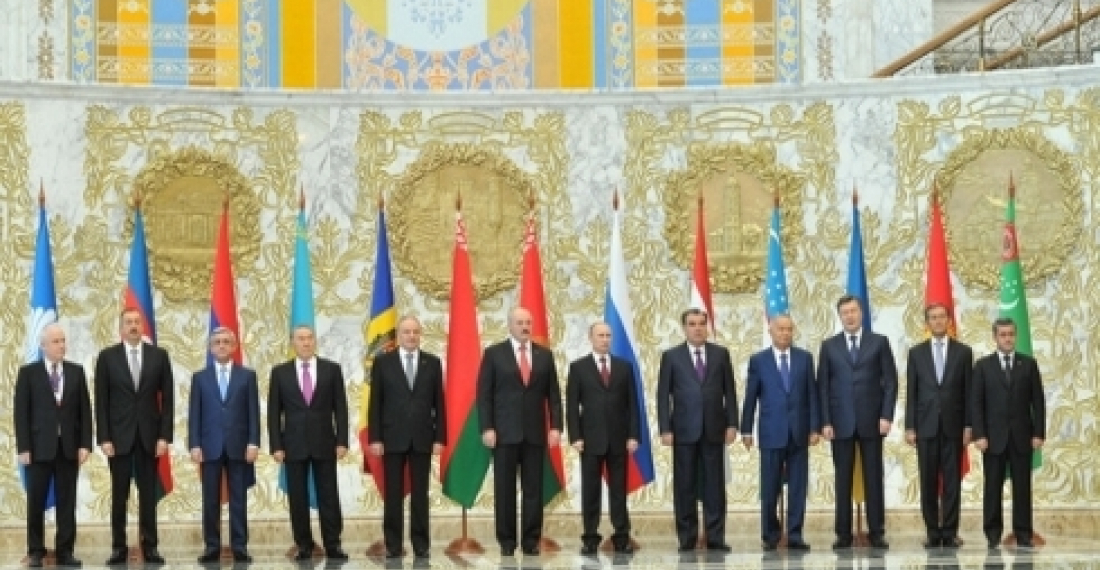A summit of the eleven countries that constitute the Commonwealth of Independent States (CIS) was held on Friday in Minsk, capital of Belarus. The summit lasted a few hours, during which the Heads of State first met in private, and than in an extended meeting with officials. Kyrghistan and Turkmenistan were represented by first Deputy Prime Ministers.
The summit adopted forteen agreements, to be added to the hundreds of others that the CIS has agreed over the twenty-two years of its existance, many of which remain only on paper.
At the end of the meeting the President of Belarus, Alexander Lukashenko told a press conference that the CIS leaders hoped that Georgia might return to the forum. Georgia left the CIS in 2009, after the Georgia-Russia War of August 2008. Presidential elections are taking place in Georgia on Sunday, bringing to a final end the era of the Saakashvili Presidency which was characterised by a hostile relationship between Georgia and Russia. It is however unlikely that any new Georgian President will move swiftly to rejoin the CIS. Suggestions that Georgia may attend CIS meetings as an observer may however form the basis of some new arrangement, once the political situation in Georgia settles down after the election.
Also present in Minsk were the Presidents of Armenia and Azerbaijan, Ilham Aliev and Serzh Sargsyan. They were pictured sitting uncomfortably next to each other. No bilateral meeting was reported, although there are at the moment efforts ongoing by the OSCE Minsk Process co-chair to organise one before the end of the year.
At the end of the Minsk Summit Ukraine took over the chairmanship of the organisation. The next summit will be held in Kiev.
source: commonspace.eu.
photo: The Official photo of the Heads of State of the CIS held in Minsk on 25 October 2013.







